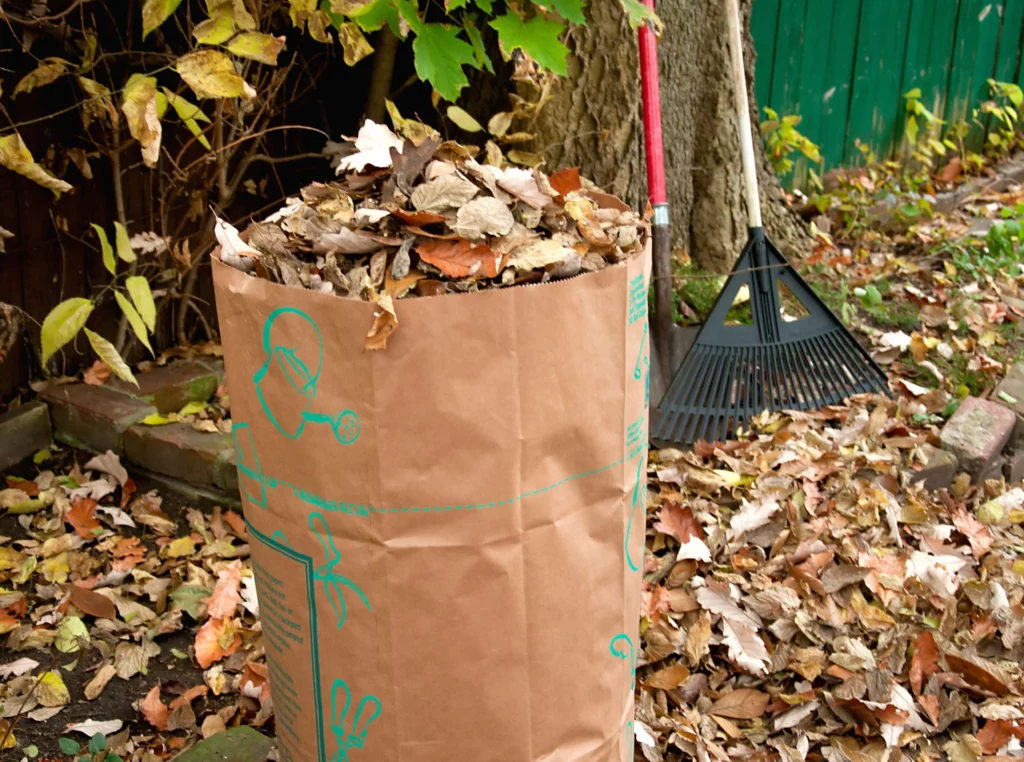Table of Contents:
- Why is it illegal to throw yard waste in the trash?
- What exactly is yard waste?
- What are the other illegal ways to dump yard waste?
- Is it legal to burn yard waste in Wisconsin?
- 4 ways to properly dispose of yard waste
- How much does yard waste removal cost?
Having spent a lot of effort cleaning up your yard, or outdoor garden, your first impulse might be to dump the yard waste in the trash and call it a day. You should probably hold that thought.
Depending on where you live, throwing yard waste in the trash might be a crime. We do know it is generally illegal in Wisconsin to toss yard debris such as leaves and grass clippings into trash cans or landfills.
Why is it illegal to throw yard waste in the trash?
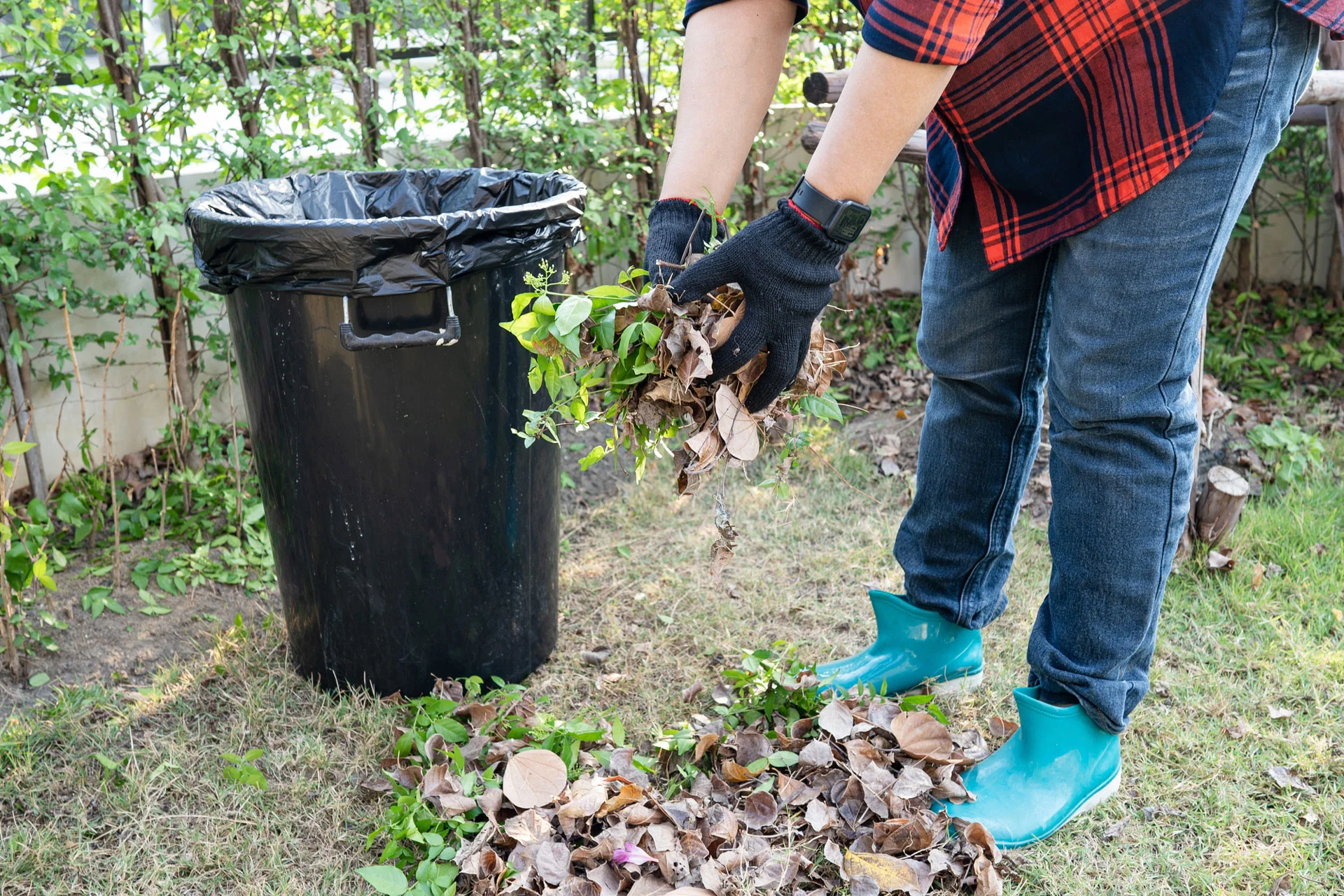
Yard waste is organic material that doesn’t decompose properly. When stored in landfills, it releases methane, a greenhouse gas that is very effective at trapping heat in the atmosphere. This essentially spurs climate change.
There’s also the fact that yard waste has more productive uses, such as being made into compost or mulch to boost plant growth.
Even if it were legal in your area, trash cans wouldn’t really be a viable method if you’re dealing with a lot of yard waste. Here, you’ll find out some of the more practical and convenient methods of disposing of yard waste.
What exactly is yard waste?
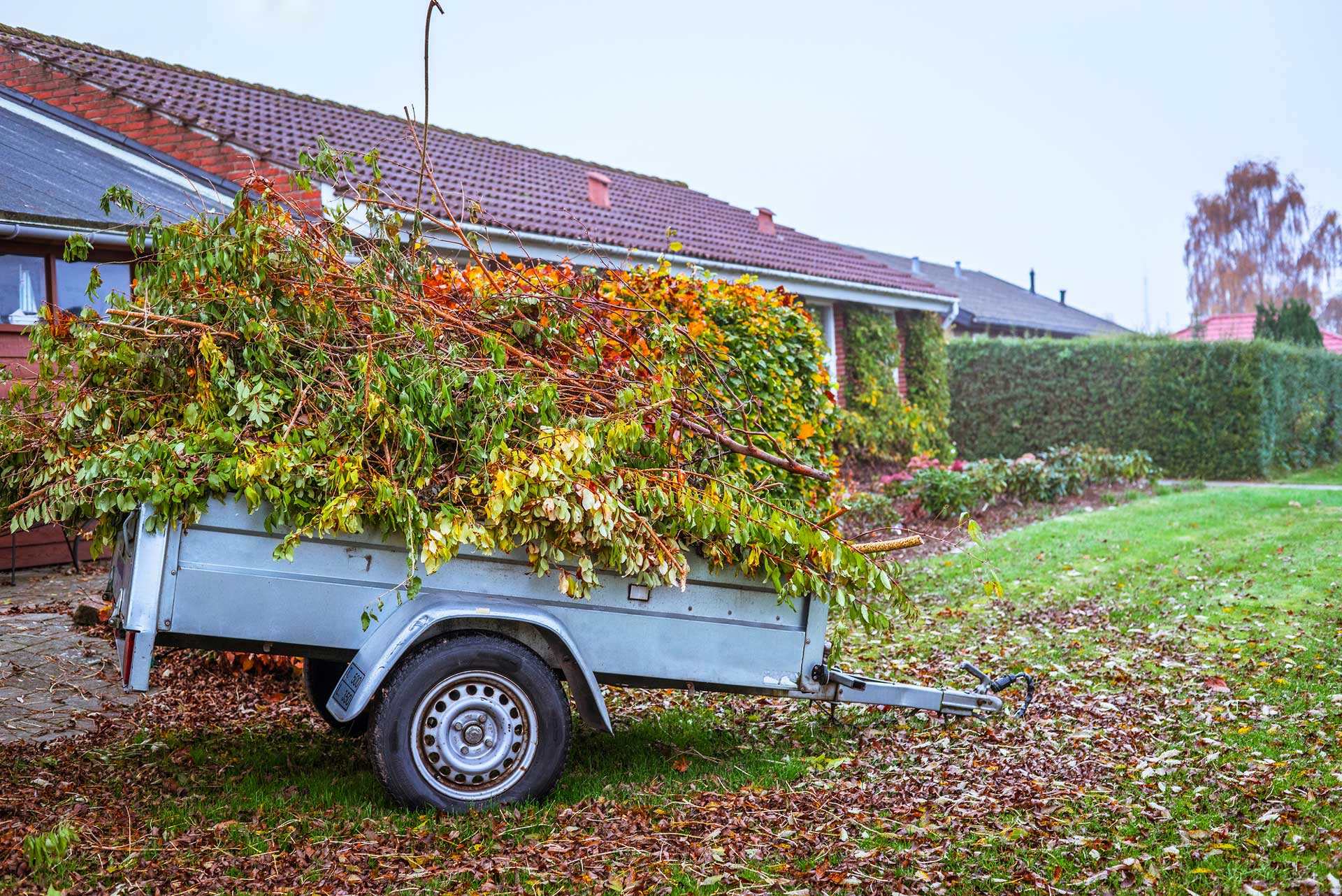
If you were curious and wondering what exactly constitutes yard waste (just to be sure if there weren’t a few things you could put in the trash after all), here’s a definition:
Yard waste refers to organic and vegetative materials; leaves, twigs, grass clippings, branches (large and small), and even small trees generated from yard cleanup and landscaping.
What are the other illegal ways to dump yard waste?
Apart from tossing yard waste in the trash can, you should also avoid:
- Dumping it on your neighbor’s property
- Packing and leaving the waste curbside or roadside, although this depends on whether your municipality offers a yard waste collection service.
- Burning it in your yard. Again, this depends on whether it is legal in your location.
Is it legal to burn yard waste in Wisconsin?
Yes, it is legal to burn yard waste in Wisconsin, but only in “small” amounts. The Wisconsin Department of Natural Resources didn’t specify exactly what could be defined as small, but it did mention that burning is allowed if the “rubbish and yard waste was created by normal household activities.”
Large or business-scale activities such as farming and landscaping “are not considered normal household activities.” However, burning waste from agricultural operations such as land clearing is allowed under certain conditions, such as following methods approved by the DNR’s Air Program.
While it is legal, burning yard waste is discouraged because it is risky, pollutes the air, and could harm neighbors.
4 Ways to properly dispose of yard waste
-
Hire a dumpster rental or junk removal service
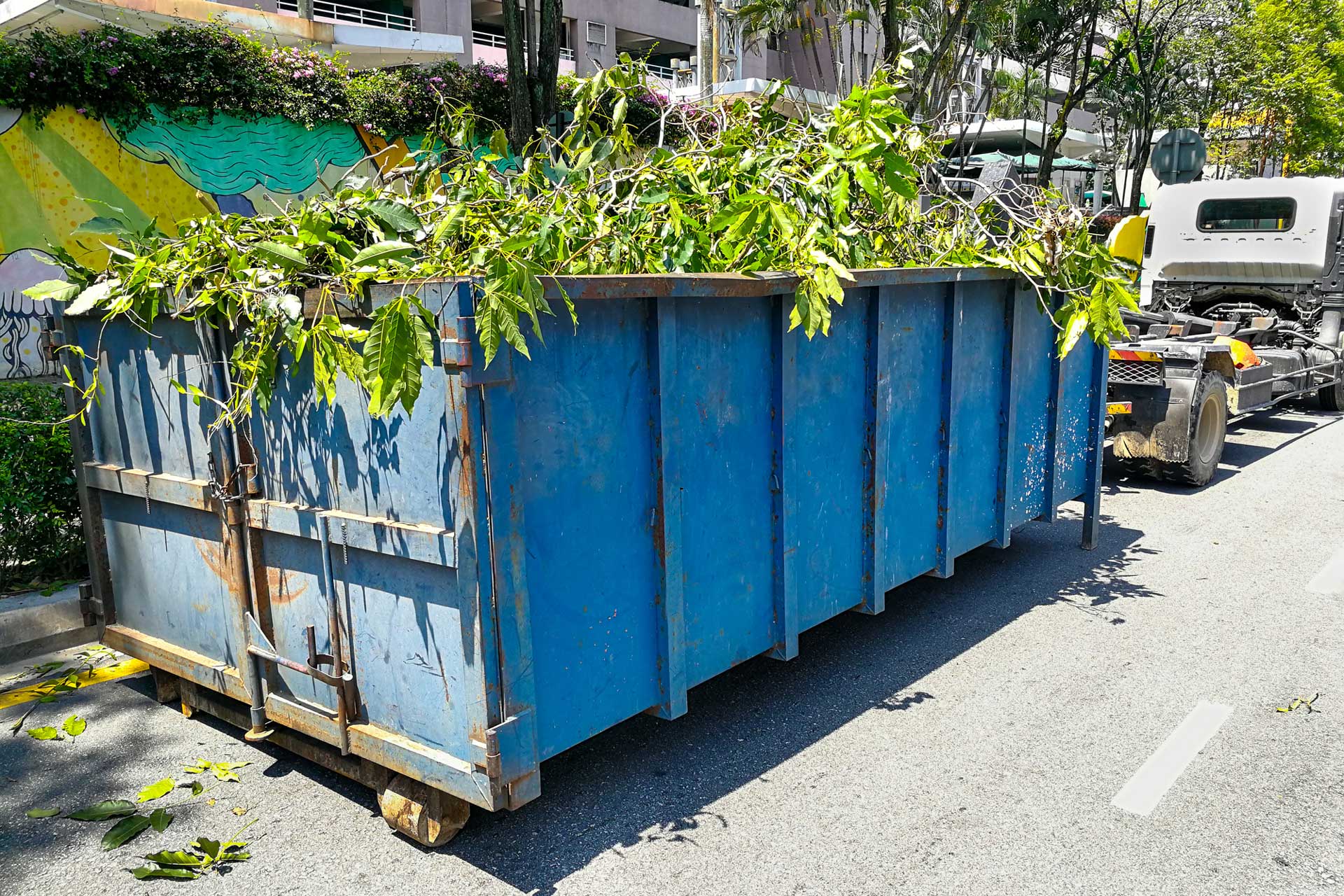
This is one of the easiest ways to get rid of your yard waste. A garbage removal service or dumpster rental will pick up your yard waste for a specified fee, and you won’t have to worry about anything else.
Be aware that junk removals and dumpster rentals operate differently, and each service has its own benefits. A junk removal will help you do the heavy lifting of the yard waste, while the dumpster rental will simply drop off and pick up the dumpster, which you will fill within a specified window.
The benefits of renting a dumpster include not having to worry about bagging the debris. You can simply throw it in the dumpster at your convenience. Also, you can rent a sizable dumpster if you have a large amount of yard waste.
Keep in mind that, depending on your area, some massive yard junk, like tree stumps, wouldn’t be allowed in a dumpster. In Wisconsin, tree stumps are generally allowed in dumpsters, but this might vary by area.
-
Use your municipal waste collection service
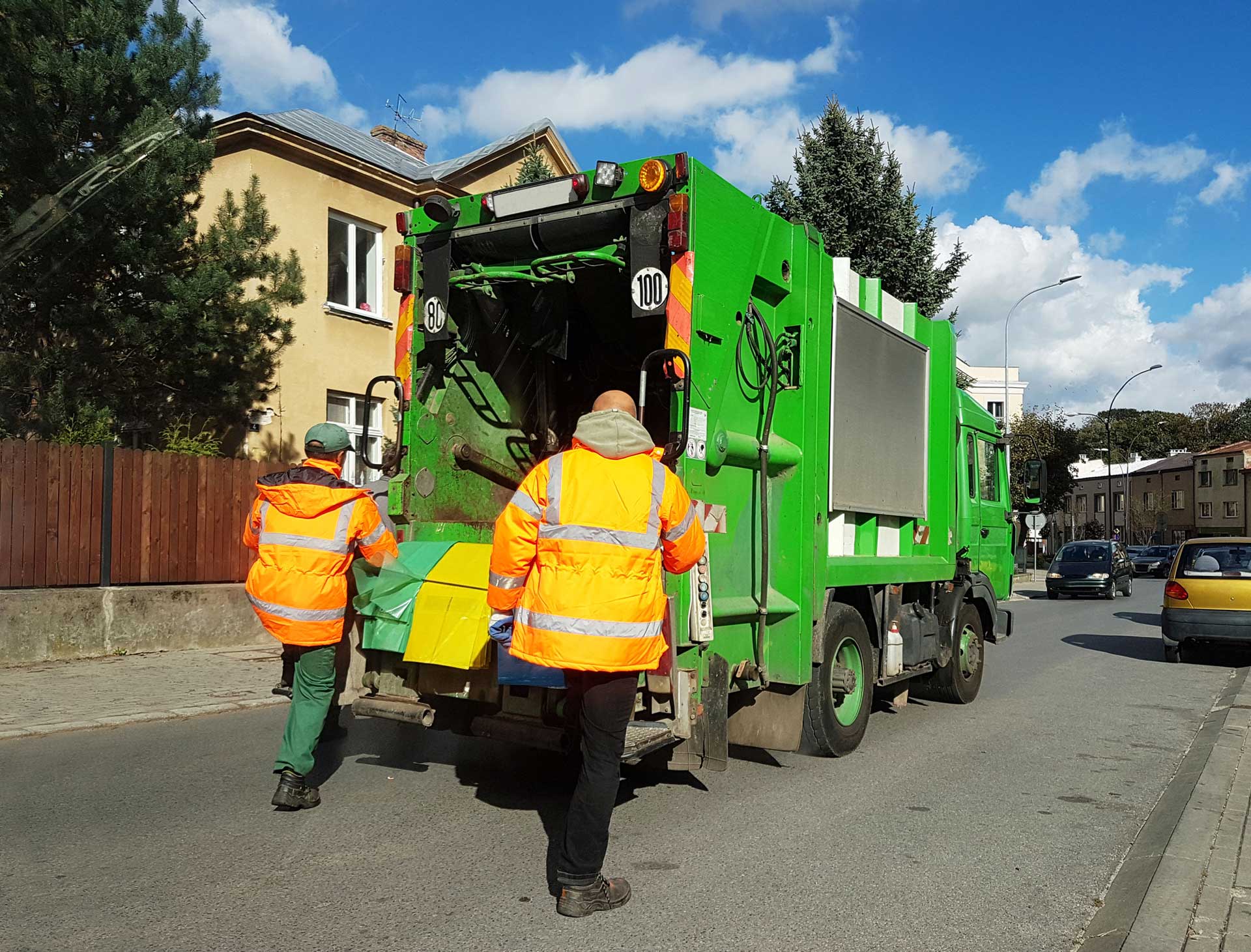
Many cities have a yard waste collection site where you can drop off your yard waste. These sites often recycle the waste or turn it into compost, which is then used for gardening or landscaping. This option, however, means you’ll have to transport the waste yourself.
Also, your municipality might have a collection service that picks up yard waste on specific dates. You will have to bag up the debris and leave it curbside for pickup day.
-
Turn yard waste into mulch or compost
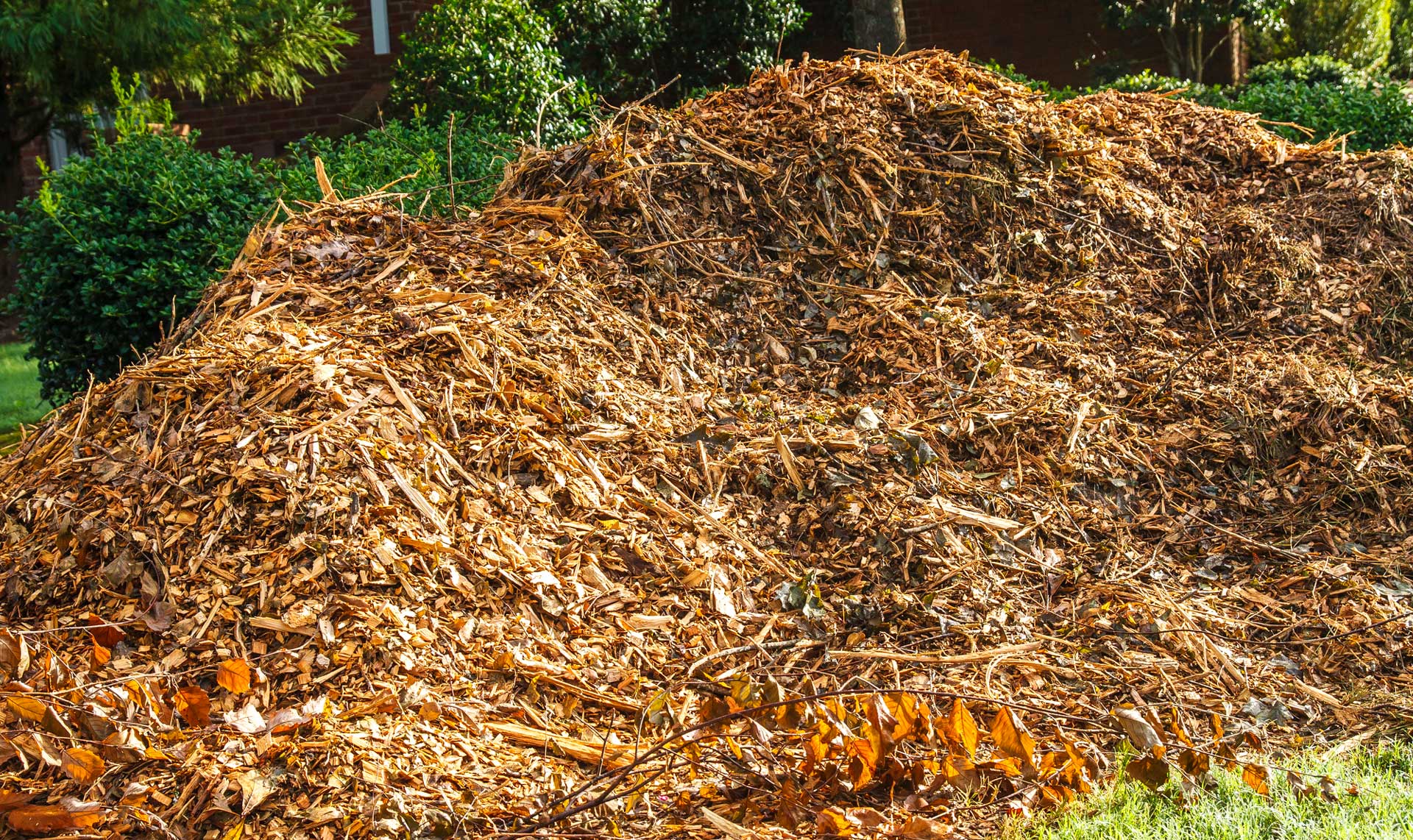
An eco-friendly way to dispose of yard waste is to turn it into mulch. Mulch can help improve soil health, retain moisture, and reduce weed growth. Small yard waste, such as leaves and branches, can be used as mulch.
To turn small yard waste, such as leaves and twigs, into mulch, you will need a shredder. Chippers and grinders are used to break down larger branches and pieces of wood.
If you prefer to decompose your yard waste, be aware that sticks and branches take a while to break down. Depending on a few factors, such as the temperature and moisture level in the compost pile, they can decompose over a period of 6 months to 2 years.
While it’s quite time-consuming, the good thing about decomposing is that it requires little manual effort.
If you are recycling a lot of yard waste, you need to be sure that you’re going to do something with all of that compost or mulch.
-
Burn your yard waste
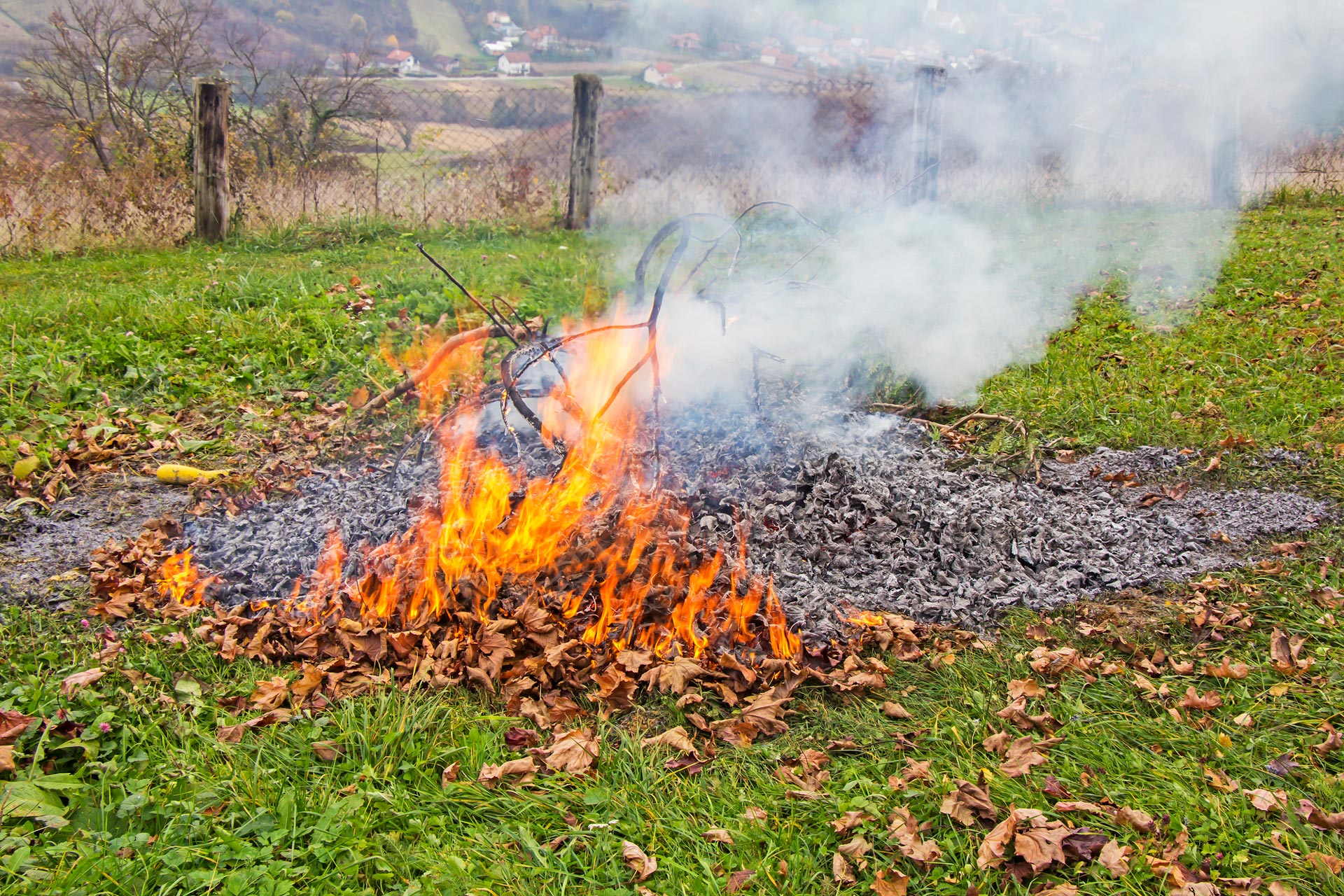
Even if it’s legal in some areas, burning yard waste is discouraged because of the toxic and dangerous nature of the practice. If you are going to do it at all, follow the few guidelines below to ensure you don’t put your home and your neighbors in danger:
- Avoid burning when it’s windy or the vegetation is very dry.
- Burn at least 150 feet from your neighbors and 50 feet from your home.
- Don’t burn close to or under powerlines, overhanging tree limbs, buildings, or vehicles.
- Make sure the surroundings are watered during the burn.
- Keep your piles small and manageable.
- Stick to organic yard waste. Don’t add household trash like plastic to the mix.
- Make sure your pile is surrounded by gravel or mineral soil in all directions.

